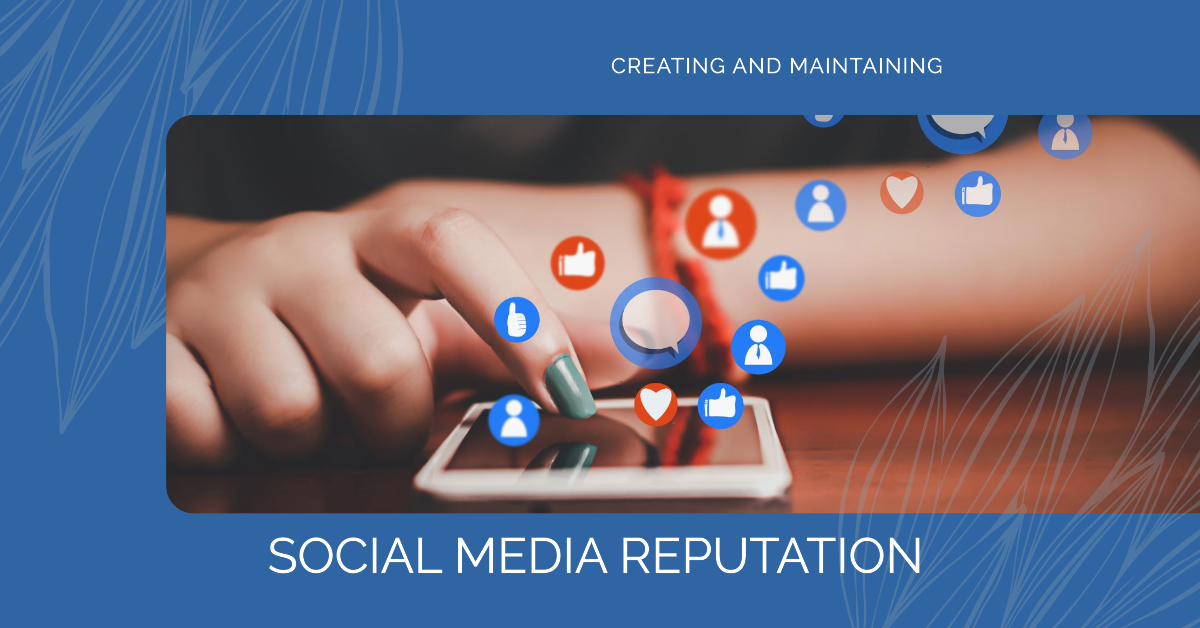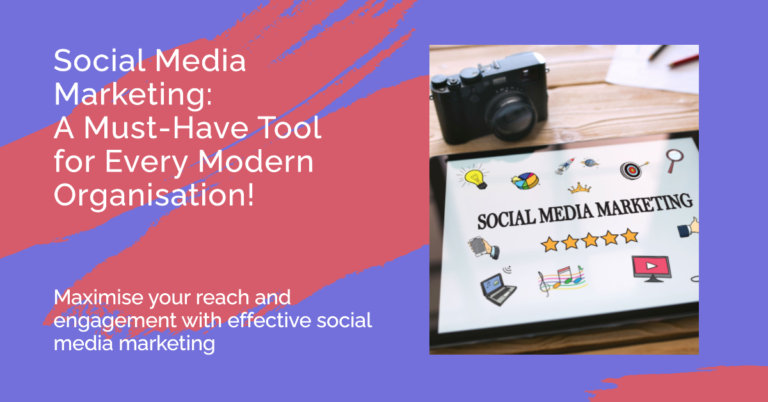A lot can hinge on your social media reputation – be it for personal branding or a business brand.
Nowadays, social media is undeniably where most people spend their time interacting with others, sharing their experiences and expressing their opinions about certain things. Hence, it makes sense that managing your social media reputation is essential if you want to make yourself known online as either a person or a brand and maintain a good reputation for years to come.
We’ll explore building a social media community reputation, from the various reputation management options to the social media tools that can help you track a competitive online presence. Whether you are a small business or a large corporation, protecting a reputation in social media territory is a must.
What Is Social Media Reputation?
Your social media reputation is how you exist on social media (Facebook, Instagram, X, LinkedIn, TikTok, etc.) as perceived by users who engage with and comment on your content, respond to your posts, and write about you elsewhere online. Online reputation management actively manages this public space by interacting with users, addressing complaints, and promoting positive experiences.
The Importance of Social Media Reputation Management
Controlling your brand’s reputation on any social media platform is not just about leaving comments or dealing with adverse reviews; it’s much more. It’s about consistency, monitoring various forms of mentions, sentiment analysis, and creating online assets that align with your brand and its values. A bad reputation turns customers away, lowers people’s trust in your brand, and might also translate into lost sales; a good one builds brand loyalty and can attract people, e.g., followers or customers.
A proper social media reputation management plan will help you track, modify, and improve your perception on all platforms. Every person or brand with an online presence needs this.
Why Online Reputation Matters
Today, for better or for worse, nearly everything about you or your brand is just a Google away. An excellent online reputation is one of your most valuable assets. It’s undoubtedly one of your most valuable assets if you’re an influencer or a small business, if you have a corporate brand that might be associated with negative news if you’ve made some missteps in your past, perhaps when you were very young, or if any negative information is appearing about you.
One bad post, one bad review, one rogue tweet – these can all be enough to create a bad rep or besmirch your good name. That is why reputation management is so important. You risk your business if you don’t proactively manage what people say about your brand. It’s all about reducing the potential for bad press and enhancing your chances that your reputation is good, which can boost your business.
The Core of Social Media Reputation Management
Track Your Online Social Media Reputation
Knowing what people say about you is the key to managing your social media reputation. Social listening and monitoring tools can help you track mentions of your brand, products, or services on social media.
Then comes sales. Facebook, LinkedIn and X each have tools that can box you up and spit out information, whether it’s how many people liked your latest picture on Instagram or how engaging your Facebook post was. You can use tools like Sprout Social, Hootsuite, CadaSocialMedia or another social suite to manage your social media or access programme-sentiment information from more robust social-media measurement suites. You’ll see the overall sentiment on websites such as forums or online review sites.
Sentiment
Sentiment shows how people feel about you (positive, negative, neutral), which is essential so that you can respond accordingly: either maintaining the status quo, embracing a more positive approach, or attempting to repair your reputation and move towards something better for your brand.
Post Responses To Online Reviews
What happens online matters if your social media reputation is on the line. Every review, in fact, including bad ones, is an opportunity. Take the time to respond and demonstrate that you care about the people investing in you, whether by buying a meal, a hotel room or a round of golf. With the bad ones, recognise the review (‘Thanks for taking the time to tell us what happened’), apologise and offer a solution, providing the experience the reviewer hoped for the first time. With the good ones, say ‘Thank you’. People like to be appreciated, and the gesture can help maintain brand loyalty.
Maintain consistent branding, messaging and tone in your social media profile across different social media networks. It will allow your brand to gain traction faster, garner more success, and maintain a positive social media reputation and authority. Social media marketing, SEO, and overall branding strategy are intricately interlinked. Inconsistency in these aspects of your brand image can confuse the audience and lead to a negative social media reputation over time.
Social Listening: The Key to Reputation Management
Social listening is about capturing conversations about your company or brand on social media. By analysing this information, you can better understand how your customers or target audience feels about your brand and its services. It also goes beyond simply tracking, alerting you to actionable insights that might help you improve your social media strategy and manage your reputation more effectively.
Using a social listening tool enables you to respond to broader conversations around your brand so that you never miss a brand mention or a piece of feedback coming your way. This, in turn, helps you proactively protect your brand reputation so you can respond to concerns quickly to help prevent brand damage.
Avoiding Reputation Damage
Maintaining an online presence brand and presence is essential, but equally important is protecting your brand from the damage caused by negative publicity. Here are some tips to help you achieve this:
- Nip it in the bud: if you reply, don’t wait a month or two. Whenever possible, answer right away – when that’s not feasible, publish a reply as soon as you can. A speedy, thoughtful response shows that you care about your readers and want to improve
- Maintain transparency: when you fumble, acknowledge it. People reward honesty and are more forgiving when a brand is transparent and accepting
- Pre-emptive monitoring: you can use social media activity- and interaction-monitoring tools to preemptively catch things and spring into action before a situation escalates
- Active engagement creates brand advocates: people who will speak loudly when things go right and whom you can mobilise when things go wrong
Corporate Reputation Management
If you’re running a large organisation, protecting your corporate reputation will be a multi-faceted affair: the company’s name and reputation are assets that must be actively managed. Corporate brands are de facto larger entities, more exposed and at greater reputational risk. With each reputational crisis, brand reputation management means more than just managing the social media sphere. It means managing the press, employee engagement and public perception.
Having the right social reputation management software will make it easier to track, analyse, and respond to mentions of your company. This will ensure that you maintain the highest possible social reputation management, so your company is never at risk of a crisis, and your reputation remains unharmed.

Building a Positive Social Media Reputation
Developing an excellent social media reputation takes time, effort and consistency. Here’s how:
- Create quality content: the crux of content marketing is that creating quality content is the key to your social media reputation. You must share helpful, engaging and relevant content with your target market. If the content educates, entertains or inspires your audience, it has value and will naturally increase your reputation
- Show your true self. People connect better with brands that feel real and relatable. Be yourself. Show your followers what goes on behind the scenes. Let them see the human side.
- Followers: interact with people on your channels. Whether you comment on people’s questions, share users’ content, or even host live events, when you engage with your audience directly, they have a greater sense of connection to you
- Stay Involved: an inactive social media account hurts your brand. People lose interest, wonder if your company is still in business, and move on. Maintaining a regular schedule of posts and engaging with followers on a regular cadence will add to your brand. It will show that you are active and predictable and exist in that virtual space
- Get influencers and brand advocates involved: get in touch with influencers or challenge your brand advocates to share your business idea with their network. Word of mouth is much more powerful than an advertisement, and people trust their peers’ recommendations
Handling Reputational Risk and Repair
Despite your best efforts to keep your reputation in order, problems may still arise. Reputational risk is ever-present in the digital age. Whether it’s a post on X that is ill-received, an article that’s misinterpreted or misconstrued, or a piece of negative press, the question is not if you’ll have a problem but how you’ll react.
If you start with a solid reputation repair plan, then even a crisis can be taken advantage of. Here’s what you should do:
- Open up: dealing with your disaster is acknowledging the problem, turning it into something your audience recognises and knows you know as much as they do
- Fix it: the solution should address the problem and demonstrate that you care enough to care about it. A public apology or a policy change can help to mitigate further damage to your reputation
- Track the situation: use social listening tools to track what’s happening and how your solution is being received
The Role of Social Media Marketing in Reputation Management
Social media marketing forms a significant part of your online reputation. Your social media marketing activities, whether paid advertisements, partnerships with influencers, or marketing collateral posted organically, will shape how you are perceived. Any positive social media activity will reflect positively on your reputation, but a misstep will also result in a public reaction.
The secret is to ensure that your activities are directed toward your reputation goals more broadly, whether building brand awareness or positioning your brand.
Protecting Personal Information on Social Media
Protecting your privacy is essential if you care about your brand on social media or your business’s brand. Data breaches or other misuse of your private information can cause reputational damage. Make your privacy policies explicit, and secure your and customers’ data.
Final Thoughts

Your social media reputation is now your reputation, full stop. Because your social media feed is usually the first thing anyone sees when they want to know who you are, just as it’s the first thing that pops up when someone wants to know what you’ve been up to. Today, your social media reputation matters because it’s your relationship with customers, followers, and business partners. Managing your reputation on social requires a vigilance approach – monitoring your social media feeds regularly, interacting with your audience and ensuring that your social media strategy fits with your broader strategy.
Use the appropriate tools, such as social listening platforms, reputation management software and social media monitoring systems. You’ll be able to monitor and manage your reputation. Be present, share helpful content, respond to feedback, and you’ll set yourself up for building and maintaining a solid social reputation. It will help you to build positive brand perception and brand loyalty.
Remember, your social media presence is your identity or brand. Treat it respectfully, and you will be rewarded with a respectable and enduring reputation.







